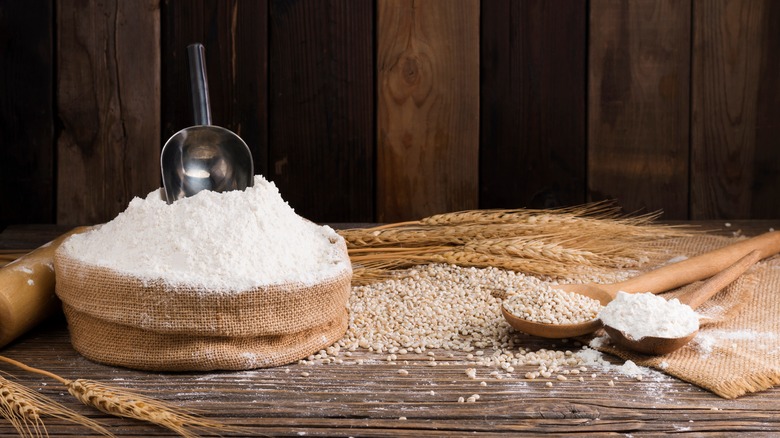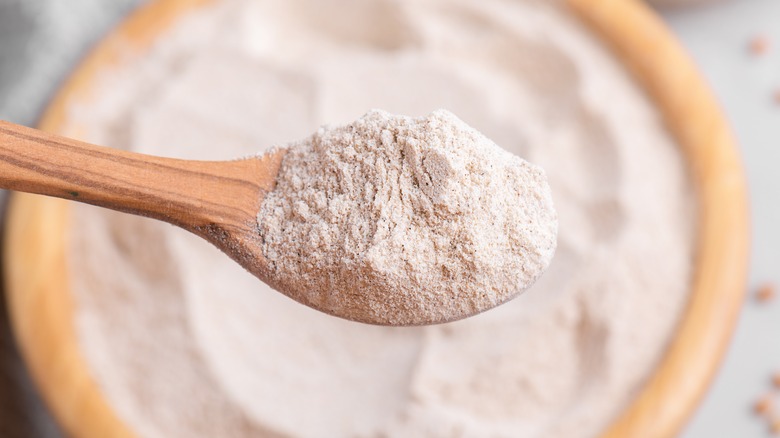Does Flour Ever Expire?
Have you ever been digging through a particularly cluttered kitchen cabinet and found a bag of flour that you can't for the life of you remember buying? Have you ever found a half-empty bag of the white stuff shoved to the back of your pantry? Flour is one of those key ingredients that every kitchen should have, but you never really throw it out as much as you do produce or other perishable ingredients. This raises the question: Can flour ever really go bad or is it something you can keep in the back of your pantry forever?
According to Healthline, flour can indeed go bad. While it does have a pretty long shelf life, flour can go bad from as little as three months to as long as eight months. But if that's the case, you may wonder, wouldn't we be buying flour more often than not? As The Provident Prepper explains, your average white flour can actually have a much longer shelf life depending on how you store it. It's recommended that your flour be stored in an air-tight container, such as a tightly-sealed plastic container or a Mason jar. The correct type of storage, alongside the naturally processed and dry qualities of flour, means that you can still use your flour even after eight months have passed with very little to no risk.
But how can you tell if you have expired flour to begin with? Would there be a change of color, smell, or even texture?
Smell or taste the flour to see if it's gone bad
Although flour may have a long shelf life under the right conditions, it's important to see whether you have expired flour, or else you may mistake it for fresh, usable flour. But how to go about seeing if this powdery stuff is expired?
According to Spoon University, you may notice that your flour has an odd smell to it, like a "sour" or "musty" smell. You may also notice that the flour has developed clumps due to exposure to water or moisture. In extreme cases, the flour may even have mold growing in these clumps, meaning that it must be disposed of immediately to prevent the mold from spreading to other foods.
But what would happen if you accidentally added expired flour to your dish? According to Baking Kneads, accidentally consuming a small amount of rancid flour may leave your food tasting kind of off-putting, but you won't be any worse for wear. EatingWell supports this claim, noting that the only side effect you may feel from eating something with expired flour will be a bad taste in your mouth. Consuming large amounts of it, however, could lead you to ingest mycotoxins or mold-based spores that could make you sick.
So long as your flour is stored in an airtight container, you should have more than enough flour to last you for a long time. It's always best to just double-check what you're using isn't expired though.

